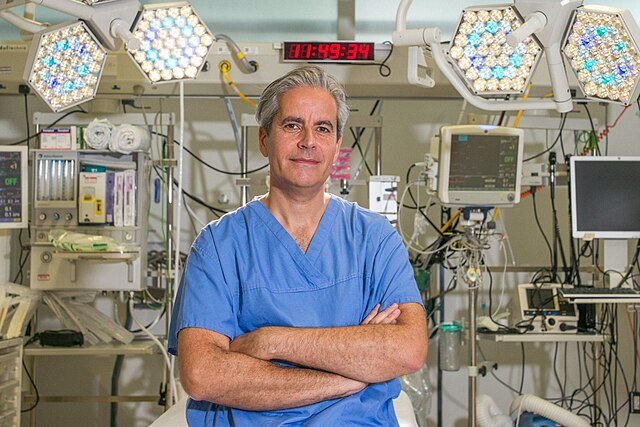In a small courtroom in Vannes, Brittany, a heavy silence fell as Joël Le Scouarnec, a 74-year-old former surgeon, stood motionless, dressed in black, while Judge Aude Burési delivered a 20-year sentence—the maximum possible—for raping and sexually assaulting 299 victims, mostly children, over 25 years. The verdict, handed down on May 28, marks the end of France’s largest child sex abuse trial, a case that’s left the nation grappling with the scale of Le Scouarnec’s crimes and the system that let him slip through for decades. Here’s the story of a man dubbed a “devil in a white coat,” the pain of his victims, and the questions that linger.
Le Scouarnec’s crimes, spanning 1989 to 2014, targeted vulnerable children, often under anesthesia or just waking up after surgeries in a dozen hospitals across western France. The average age of his 158 male and 141 female victims was 11, with the youngest just four. Many had no memory of the abuse, only learning of it years later when police, guided by Le Scouarnec’s chillingly detailed diaries, tracked them down. “I couldn’t believe it was me they were talking about,” said Marie, now 38, a mother of three who discovered in 2019 she was among the victims. Le Scouarnec admitted to all 299 counts in March, confessing to 111 rapes and 189 sexual assaults, even acknowledging abusing his own granddaughter in front of her devastated parents.
The trial, which began in February, was grueling. Dozens of victims faced Le Scouarnec, sharing how his abuse shattered their lives—stories of eating disorders, addiction, and anxiety. One woman, who waited 30 years for justice, told police, “I’ve been waiting for your call.” Another, Louis-Marie, 35, found Le Scouarnec’s courtroom apologies hollow: “He says the same words, same tone, no sincerity.” Two victims took their own lives, including Mathias Vinet, whose grandparents blame Le Scouarnec for his 2021 death. “I’m responsible,” Le Scouarnec admitted in court, his voice flat, when confronted with their photos.
Read also : Germany’s Bold Move
What stings as much as the crimes is how Le Scouarnec evaded justice. In 2005, he was convicted for possessing child sexual abuse images, receiving a four-month suspended sentence. Yet, he was hired as a hospital practitioner the next year. Colleagues raised alarms—like a psychiatrist in 2006 who reported his “sexual metaphors” about a child’s surgery—but hospitals, facing surgeon shortages, kept him on. “There was an omertà,” said Mauricette Vinet, whose grandson Mathias was a victim. “People knew but stayed silent.” The National Order of Doctors later admitted “poor communication” allowed him to continue practicing.
Victims like Amélie Lévêque are haunted by the sentence’s limits. With seven years already served and a mandatory two-thirds term, Le Scouarnec could be paroled by 2030. “He could walk free while we’re still broken,” she said, her voice trembling. The Victims of Joel Le Scouarnec Collective, protesting outside the courthouse, called the trial’s low profile a disgrace. “Politicians, the medical world—no one’s learned anything,” they said. Catherine, a victim’s mother, added, “I hope our pain protects future generations.”
Le Scouarnec, already serving a 15-year sentence from 2020 for abusing four children, including his nieces, showed no remorse beyond calculated words. “I am a paedophile and a child rapist,” he told the court, claiming he no longer feels attraction to children—a claim prosecutors dismissed, citing his “significant” risk of reoffending. His notebooks, filled with graphic accounts and titled “my paedophile letters,” were key to the case, exposing a predator who hid behind his surgeon’s coat.
This case, alongside others like Gisèle Pélicot’s, has pushed France to confront its taboos around sexual abuse. Yet, for victims, justice feels incomplete. “It’s not just one man—it’s the system that let him,” said lawyer Maxime Tessier. As Le Scouarnec returns to his cell, families like Marie’s carry scars no sentence can heal, hoping their voices spark change. For updates, check France’s judicial or victims’ advocacy sites.





